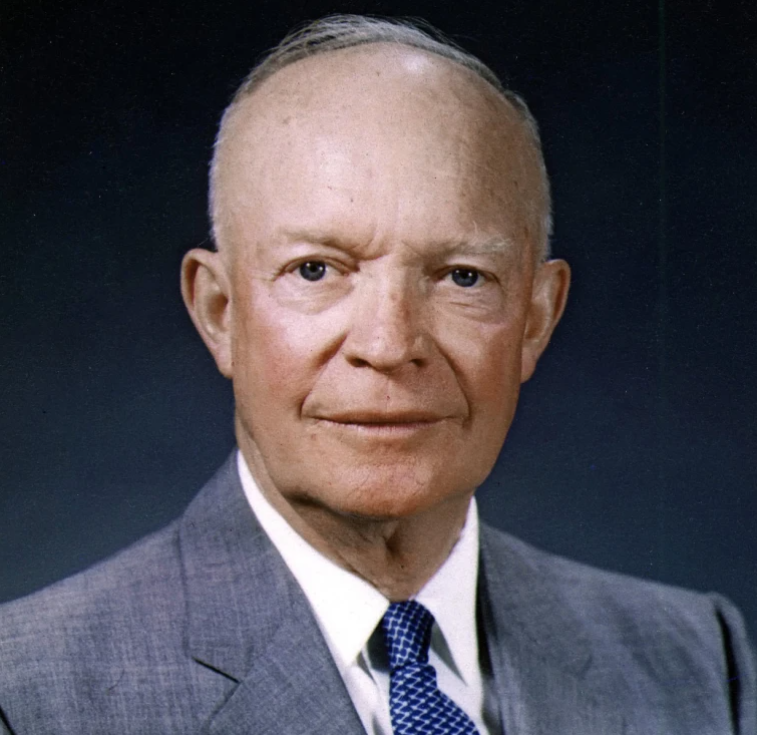Dwight D. Eisenhower served as the 34th President of the United States from 1953-1961. During his presidency, Eisenhower was committed to containing the spread of communism and mitigating federal deficits. Today, Eisenhower is remembered for his signing of the 1957 Civil Rights Act, sending of federal troops into Little Rock, Arkansas, and his establishment of the Interstate Highway System.
Early Career
Eisenhower was born on October 14, 1890, to a large family in Denison, Texas. He was raised in Abilene, Kansas by a devout religious family, although Eisenhower himself never claimed any religious affiliation until 1952. After graduating from West Point Academy in 1915, he married Mamie Doud and had two sons. Eisenhower began his World War I service as the commander of a unit that trained tank crews. In 1941, after the first World War, he was promoted to brigadier general. When the United States entered World War II, Eisenhower supervised the invasions of North Africa, Sicily, France and Germany. After the war, Eisenhower became the Army Chief of Staff, president of Columbia University and the first Supreme Commander of NATO.
Eisenhower ran as a Republican in the presidential race. He was opposed to the anti-NATO isolationist strategies of Senator Taft, and instead believed in foreign engagement. Eisenhower was successful in his first and second presidential campaigns, both times over Adlai Stevenson II.
Presidential Tenure
As President, Eisenhower had several notable accomplishments. After winning the election by a landslide, Eisenhower began his 8-year presidential tenure by entering into an armistice agreement with China. This armistice would end the Korean war and would be considered, by Eisenhower himself, to be his greatest presidential accomplishment. He implemented the “New Look” policy which re-allocated expensive Army division funding to inexpensive nuclear weapon funding, provided significant aid to the French against the Vietnamese Communists in the First Indochina War, supported military coups in Iran and Guatemala, and condemned the invasion of Egypt during the Suez Crisis of 1956. After Sputnik in 1957, Eisenhower established NASA, thus initiating the Space Race between the U.S. and the Soviet Union.
Domestically, Eisenhower served as a moderate conservative who sought to increase social benefits. He continued to support New Deal agencies, as established by President Roosevelt. As one of his most remembered executive actions, Eisenhower signed the Civil Rights Act of 1957 then subsequently ordered troops to Little Rock, Arkansas to enforce federal court orders seeking integration in schools. In his largest action as President, Eisenhower established the Interstate Highway System. He was also successful in implementing a robust science education curriculum through the National Defense Education Act. Economically, the United States was prosperous during his presidency, and only faced a minor hiccup in 1958. Before his term ended, Eisenhower warned of the dangers of long-term costly expenditures, namely military expenses, but also emphasized the importance of keeping a robust military. In March of 1969, Eisenhower passed after succumbing to congestive heart failure. He is remembered today as one of the most influential presidents of his time.






